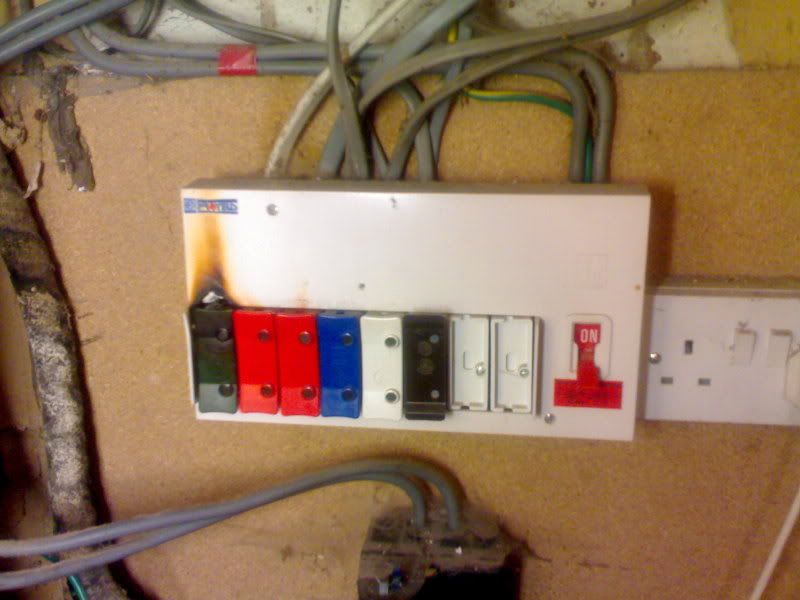You really don't seem to have a clue what's going on, do you.
6mm is fine so long as the run is under 18 metres.
How many times does it have to be pointed out that we have no way of knowing whether the cable is 6mm², and that given the OP's description it probably isn't, before it sinks in?
How many times does it have to be pointed out that we don't know how the cable has been installed and therefore we don't know what de-rating factors apply before it sinks in?
Obviously if he wraps it fifty times round the gas pipe and nails it to the wall with carpet tacks it won't be, but such things really don't need saying.
What on earth are you on about?
Again, he has stated it is 6mm and run from the CU to the shower. This is what my advice is based on.
He has said that it is 6mm thick, not that it is a 6mm² cable!
He has not said what installation method applies!
Your advice is flawed, and could be fatal!
If you have reason (which you don't) to doubt what he has said, why tell me about it?
I'm telling you because you are the one giving incompetent advice.
And I have every reason to doubt that the cable is 6mm².
If you think he has overlooked a badly laid cable
Will you please explain why you keep going on about a "badly laid cable"?
Will you please show me where I have said, or implied, that the cable has been badly laid?
You don't actually understand what is meant by installation method, or its relevance to the current that cables can carry, do you?
or doesn't know how to recognise what size it is, address your sanctimonious lectures to the OP.
I'm sorry that you think it is sanctimonious to point out that it is wrong to give advice on how big a load a cable can take when you don't know what size the cable is and you don't know how it's been installed.
Maybe you should stop giving advice - it's beyond you.
I'm advising what he can do with a 6mm cable run from the CU to the shower on the wrong fuse, which is what he as asked.
You're giving him advice which could cause the house to burn down.
Do you want to know what you
might have told him to do?
You
might have told him that it's OK to put a cable rated at 17.5A on a 40A fuse. You don't have enough information to know that you haven't.
"There's no problem just swapping the fuse on a modern CU for the right one, provided there is no fault on the circuit.
Err... what about "and provided the cable is adequately rated"?

And only extremely anal people bother with a superscript 2.
No - people who realise that "6mm²" is not the same as "6mm thick" do that.
People who realise that the csa of cables is what matters do that.
People who realise that a cable which is "6mm thick" could well not be a 6mm² cable do that.
i.e. not people like you.
Please go away.



